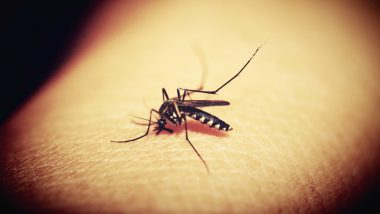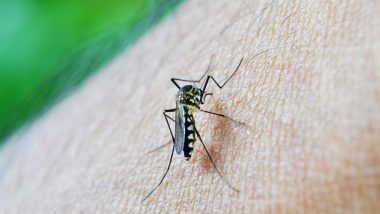Washington, September 17: People with low iron levels in the blood are more likely to spread the deadly dengue virus, according to a study which suggests that patients taking iron supplements during the illness may limit the transmission of the disease by mosquitoes. Dengue fever, a disease spread mainly by the Aedes egypti mosquito causes fever, rashes, and terrible aches, and can also lead to shock and death
According to the World Health Organization (WHO), there are about 390 million cases of the disease every year, and is now endemic to more than 100 countries in Africa, the Americas, the Eastern Mediterranean, South-East Asia region, and the Western Pacific. Mosquito Repellents: 8 Natural Kitchen Ingredients to Drive Out the Blood-Sucking Insects and Prevent Dengue, Malaria.
According to the study, published in the journal Nature Microbiology, dengue patients with higher levels of iron in the blood, had lesser chances of infecting mosquitoes that draw their blood with the virus. The researchers led by Penghua Wang of University of Connecticut in the US, wanted to see if the quality of a dengue patient's blood had an impact on the spread of dengue virus.
They collected blood from healthy human volunteers and added dengue virus to each sample. When they fed the blood to mosquitoes, and checked how many of the mosquitoes were infected from each batch, they found lots of variations.
Wang and his colleagues found that the variation was linked closely with the level of iron in the blood. "The more iron in the blood, the fewer mosquitoes were infected," said Wang. The researchers also found similar results when using a mouse model. They found that anaemic mice were more likely to transmit the virus to mosquitoes that fed on their blood.
The team noted that this was due to the immune systems of the mosquitoes.
The researchers found that the gut cells of mosquitoes take up iron from their blood feed, and use it to produce reactive oxygen, which kills the dengue virus. Wang explained that dengue was prevalent in areas where iron deficiency was also more common. However, he added that it doesn't necessarily explain the high prevalence of dengue in those areas.
"But it could be possible that iron supplementation could reduce dengue transmission to mosquitoes in those areas," Wang added. However, the researchers added that there was a caveat. They cautioned that malaria -- caused by the plasmodium parasite -- was common in the same areas as dengue, but the malarial parasite thrived in iron rich environments.
Wang and his team added that malaria may become more prevalent in such areas if everyone is supplementing with iron. They cautioned that public health authorities must weigh the costs and benefits before initiating population-wide iron supplementation programmes.













 Quickly
Quickly





















